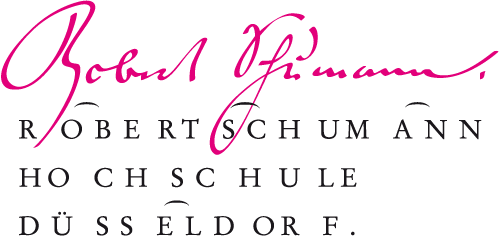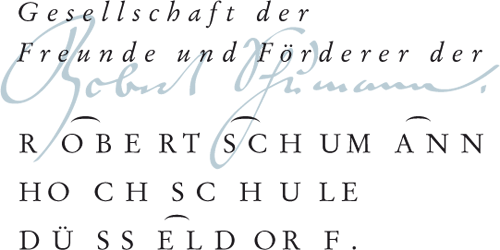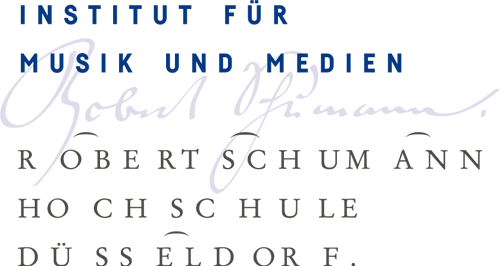Orchestral Instruments (bachelor’s)
Orchestral Instruments students in the Music Performance program are prepared for a career as professional orchestral or chamber musicians. The program of study includes the (Instrumental) majors of Bassoon, Horn, Clarinet, Oboe, Flute, Saxophone, Trumpet, Trombone, Tuba, Viola, Violin, Cello, String Bass, Harp and Percussion.
The bachelor’s program in Orchestral Instruments generally takes eight semesters. The heart of the program is individualized weekly instruction on the instrument and playing in the orchestra. This is supplemented by chamber music instruction, orchestral studies, musicology and music theory. In the third year of study students may also choose to specialize in instrumental pedagogy. In addition, a wide range of electives offer students the opportunity to further develop their abilities and study outside their individual specialty. Successful graduates from the bachelor's program can continue with a four-semester master’s program in Orchestral Instruments.
Detailed information about the sequence and contents of the program can be found in the Orchestral Instruments (bachelor’s) module overview.
Students who study Orchestral Instruments in Düsseldorf benefit from a variety of performance opportunities both inside and outside the university. For example instrumentalists regularly appear in concert and recital series at the Haus der Universität or the Robert-Schumann-Saal.
The University Symphony Orchestra performs once a year at the Düsseldorf Tonhalle and takes part in productions of the opera class on campus in collaboration with the Deutsche Oper am Rhein. Finally, each semester a special chamber music event and New Music Marathon Night offers university ensembles the opportunity to show off their artistry.
Students can take part in the Sieghardt Rometsch Competition, which takes place every year in the solo and chamber music categories. In addition, the Robert Schumann Hochschule Düsseldorf also hosts the annual International Aeolus Competition for woodwind and brass instrumentalists.
Instructors
Bassoon: N.N.
Clarinet: Prof. Andreas Langenbuch
Oboe: Ralph van Daal
Flute: Prof. Michael Faust, Prof. André Sebald, Prof. Evelin Degen
Trombone: Matthias Gromer
Trumpet: Prof. Peter Mönkediek
Saxophone: Martin Hilner
Horn: Prof. Mahir Kalmik
Tuba: Prof. Hans Nickel
Viola: Prof. Barbara Buntrock-Pastawski
Violin: Prof. Andrej Bielow, Prof. Andreas Krecher, Prof. Solenne Païdassi Prof. Yamei Yu
Cello: Prof. Gregor Horsch, Prof. Pieter Wispelwey
String Bass: Prof. Rick Stotijn
Harp: Fabiana Trani
Percussion: Prof. Bert Flas
Proficiency Test
Candidates for the Orchestral Instruments program must complete a proficiency test:
Applicants for both the undergraduate and master’s program must complete a music performance proficiency audition. Requirements for the various instruments are specified here:
Bassoon: B. Mus.
Horn: B. Mus.
Clarinet: B. Mus.
Oboe: B. Mus.
Trombone: B. Mus.
Flute: B. Mus.
Saxophone: B. Mus.
Trumpet: B. Mus.
Tuba: B. Mus.
Viola: B. Mus.
Violin: B. Mus.
Cello: B. Mus.
String Bass: B. Mus.
Harp: B. Mus.
Percussion: B. Mus.
The proficiency test for the bachelor’s program also includes tests in music theory and aural skills at level 1. Sample exams are available in the Music Theory section of this website.
Proficiency in German
International applicants must possess adequate German language skills. The B2 certificate (according to the Goethe Institute classification system) or a comparable qualification is required. This also applies to direct enrollment in a higher semester.
Commencement of studies and application deadlines
It is only possible to commence studies in the Orchestral Instruments bachelor’s program in the winter semester. The application deadline is March 1. The date-of-receipt stamp of the university applies.
Applying
Applications must be submitted online, along with access to the online application portal Muvac. Further information can be found here (German).
Further Information
Questions about the academic program will be answered by subject tutors and the Registrar’s Office.
Fon: +49.211.49 18 -0 www.rsh-duesseldorf.de


